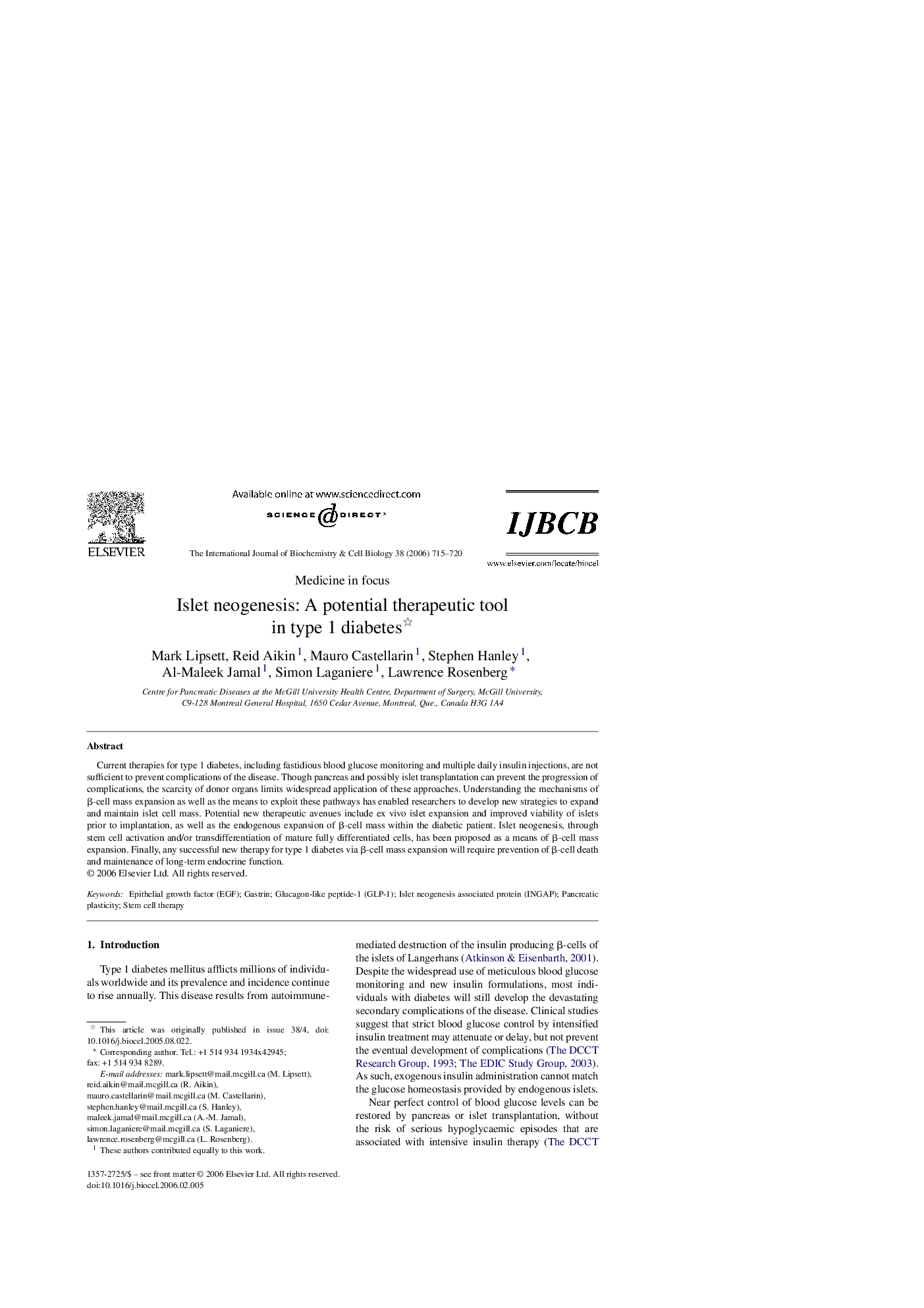| Article ID | Journal | Published Year | Pages | File Type |
|---|---|---|---|---|
| 1984678 | The International Journal of Biochemistry & Cell Biology | 2006 | 6 Pages |
Current therapies for type 1 diabetes, including fastidious blood glucose monitoring and multiple daily insulin injections, are not sufficient to prevent complications of the disease. Though pancreas and possibly islet transplantation can prevent the progression of complications, the scarcity of donor organs limits widespread application of these approaches. Understanding the mechanisms of β-cell mass expansion as well as the means to exploit these pathways has enabled researchers to develop new strategies to expand and maintain islet cell mass. Potential new therapeutic avenues include ex vivo islet expansion and improved viability of islets prior to implantation, as well as the endogenous expansion of β-cell mass within the diabetic patient. Islet neogenesis, through stem cell activation and/or transdifferentiation of mature fully differentiated cells, has been proposed as a means of β-cell mass expansion. Finally, any successful new therapy for type 1 diabetes via β-cell mass expansion will require prevention of β-cell death and maintenance of long-term endocrine function.
